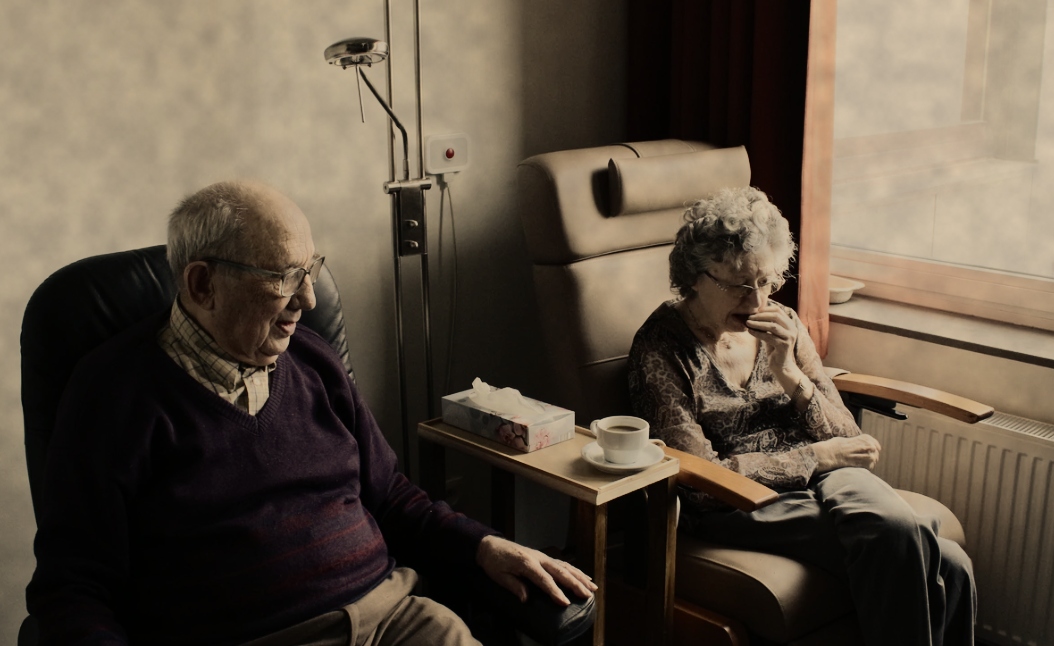Self-isolate? It's life already for millions of older people
The current coronavirus advice is a strange irony for the millions of older people for whom isolation is their daily reality, writes Louise Morse

'Go, see Granny now!' was a press headline explaining that older people, who are more vulnerable to the coronavirus than others may be advised to stay at home (self-isolate) as the government ramps up its response to prevent the spread of the disease.
It will be a strange irony for the millions of older people for whom isolation is their daily reality. For them the strategy could actually be a benefit, as it involves plans for getting food and supplies to them, and paying a little attention. If only temporarily, they will be swept out from under the radar and become visible - something they rarely experience?
Many people over the age of 60 have an underlying condition that makes them more at risk than others to infection, and immune systems become weaker with age, particularly in men.
The coronavirus is spread by droplets (aerosols) in the air and which land on surfaces. Banknotes can be carriers of the virus, and the World Health Organisation (WHO) has advised everyone to use contactless payment instead. Many older people prefer to pay by cash, so if you know anyone who does, be sure to tell them and remind them to wash their hands afterwards or use a hand sanitiser.
Dr Michael Mosley, a science journalist, is 62-years old and male, which he says puts him into two of the higher-risk categories. He also advises against shaking hands and recommends buying zinc lozenges as well as having a good night's sleep.
"During deep sleep, your body makes proteins that boost your immune system and help you fight infection. Lack of sleep will make you more vulnerable to coughs and colds," he told the Daily Mail.
The UK's Chief medical officer, Prof Chris Whitty, said that the great majority of people who have caught this virus have also survived it and that those at greatest risk of infection were not likely to be a 'goner'.
But the fact that the coronavirus won't necessarily kill you is what makes it so dangerous, and why we need to go on lockdown as soon as possible, says science journalist Brian Stoffel.
It's what he calls the "second-order effects" - the hospital beds that will be taken by people needing treatment, which will reduce capacity for the people who normally keep a hospital busy – those with chronic conditions, accidents, sudden health problems and even births. That in itself leads to suffering and death, even if it isn't reported under the coronavirus heading. For the thousands of older people with dementia who are admitted to hospital each day via A&E, it will be a double jeopardy.
Older people are reacting to the coronavirus and their possible isolation in dozens of different ways. A 66-year-old I know who is healthy apart from having chronic asthma, said that she was being very careful, and following all the advice. She knows how it feels to have to fight for breath and is already self-isolating. A retired GP, now 76-years-old, is concerned, but will still go out, taking precautions.
Others seem prepared for the worst. An 86-year-old wrote to a national newspaper saying that at her age, she was still fit and well, "still driving and exhibiting my art and enjoying life with my husband, who is 90. We have decided not to be terrified of getting the coronavirus. We have had a good life and if it gets us, it will save a lot of money and inconvenience in the event of having to be looked after in an old people's home, the prospect of which really is frightening."
On a separate note, it's time that the myths about residential care were swept away. Yes, occasionally there'll be a story of a failing home, and indifference and neglect. It's shocking and despicable, and our hearts go out to those affected because cruelty to vulnerable people is our worst nightmare. Yet it's the contrast with the 'norm', the caring, loving homes, that magnifies these horror stories.
Not only is life in a care home peaceful and the exact opposite of 'frightening', it's arguably the safest place for frail elderly people right now. Care homes have been looking after vulnerable older people for decades (Pilgrims' Friend Society since 1835), and infection control is embedded in their daily thinking and practices. For example, when the infamous norovirus rages in the winter time, lockdown and containment is automatic.
Care homes are also well supported by Public Health England's (PHE) local Health Protection Teams, and kept up to the minute with Government information.
In her daily briefings to housing and care home managers, our Assistant Director of Operations and Coronavirus Lead adds a footnote: "Do not be anxious about anything, but in every situation, by prayer and petition, with thanksgiving, present your requests to God." (Philippians 4:6)
It's good advice for all of us, including older people, along with following advisory guidelines.?
Louise Morse is author of several books on old age, a cognitive behavioural therapist, and media and external relations manager with the Pilgrims' Friend Society, a Christian charity supporting older people for over 200 years.
Image | Elien Dumon | Unsplash
Do you have a view? Share your thoughts via our letters' page.
Baptist Times, 11/03/2020